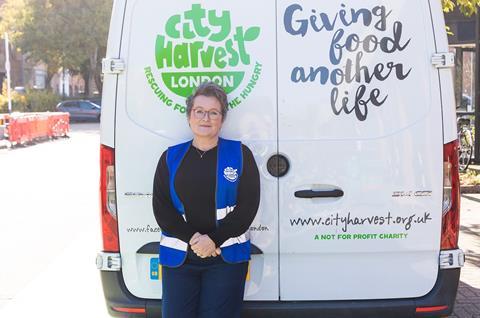A dozen food charities will benefit from the additional cash
The government has announced a total of £13.6 million of new grants to help boost food redistribution and fight hunger.

The cash has been offered to 12 food charities across England – including City Harvest, Food in Community and FareShare – to redistribute an estimated 19,000 tonnes of food directly from farms.
Under the government’s Plan for Change, the Tackling Food Surplus at the Farm Gate scheme was set up to help charities in England boost their relationships with farmers. It will see more farm gates opened to organisations who will ensure edible food that might have been left in fields instead ends up on the nation’s plates, according to Defra.
Community kitchens, food banks, shelters and cookery projects across the country are all set to receive food through these organisations on the back of the grant scheme.
Successful redistribution organisations who applied for funding through the grants include City Harvest, which will receive more than £303,000; a consortium bid led by FareShare UK and its network partners, including Felix Project, which will receive more than £9.2mn; and Food in Community, based in Devon, which has secured more than £1.5mn to partner with local farmers and food producers to redistribute surplus food.
Waste minister Mary Creagh said: “This government’s Plan for Change is acting on food poverty and tackling Britain’s throwaway culture, ensuring more good food ends up on plates and not in bins.
“I am delighted to see this support go to 12 outstanding redistribution charities to form closer relationships with our hard-working farmers, and ensure their good food goes to those in need.”
Sarah Calcutt, CEO of City Harvest, added: “We grow a frankly amazing range of fruits and veg in this country, from berries to spuds and brassicas to salads. But the truth is, as any farmer will testify, that a significant percentage of the food we grow will go to waste.
“And the reasons for this waste are often around shape and size not meeting retailer specifications rather than anything to do with health or nutrition. This new funding will allow us to increase the amount of food we pick up directly from farms, reduce farm costs and increase further the amount of fresh food we can offer our customers.”
Addressing throwaway culture
To tackle the nation’s throwaway approach further, an independent Circular Economy Taskforce has been established to bring together the brightest minds from industry, academia and civil society.
The taskforce will focus on five priority sectors to begin with – including agri-food – to create a series of specific roadmaps to improve and reform the approach to using materials, underpinned by a Circular Economy Strategy which will be published in the autumn.



